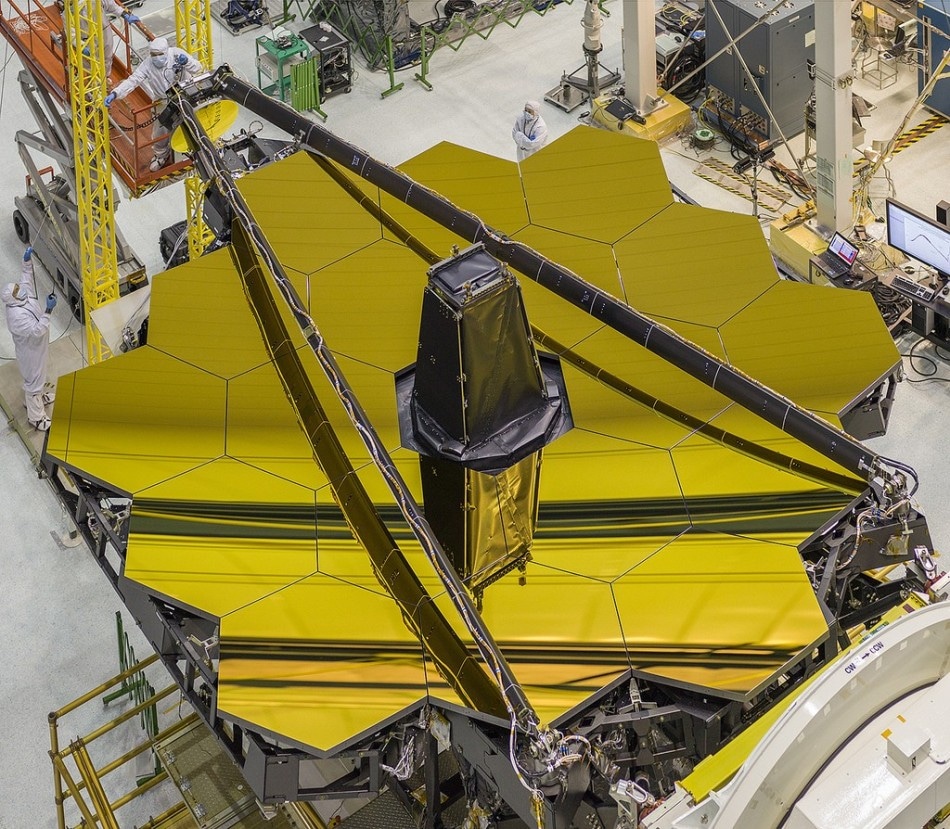Apr 24 2017
A new astronomy research center of excellence will be established by the Danish Government to study how and when the first ever galaxies formed in our Universe.
 Primary mirror(s) of the James Web Space Telescope. Credit: NASA/Chris Gunn
Primary mirror(s) of the James Web Space Telescope. Credit: NASA/Chris Gunn
ICRAR-UWA based Dr Claudia Lagos is one of the core researchers in the Center, which will strengthen scientific ties between Denmark and Western Australia.
The Cosmic Dawn Center (DAWN) brings together 17 researchers in Denmark, Australia, USA, Germany, The Netherlands, Switzerland, and the United Kingdom, all internationally recognised in the study of galaxy formation and evolution.
Dr Lagos said, “DAWN will help understand the first collections of stars in the Universe, the first galaxies, working on the universal question, ‘how did it all begin?'”
“The Center will allow me to work closely with colleagues in Denmark and beyond, using next generation space and ground telescopes to understand the moment the Universe evolved from complete darkness to a menagerie of galaxies.”
DAWN has received over 60 million Danish Krone (more than 12 million AUD) from the Danish National Research Foundation for its work.
Dr Lagos is part of ICRAR’s Computational Theory and Modelling group, who simulate the Universe on large and small scales to help understand observations. Using supercomputers, Claudia can simulate how the first galaxies crystallised out of the hot, dense gas and dark matter of the early Universe.
“We can then compare our simulations to what we actually see with telescopes like the James Webb Space Telescope and ALMA, helping us understand why the Universe looks like it does.”
“I’m looking forward to strengthening the ties between these next generation telescopes and local radio telescopes such as the Murchison Widefield Array and CSIRO’s ASKAP through my connection to DAWN.”
The Cosmic Dawn Center is funded by the by the Danish National Research Foundation and located at the Niels Bohr Institute at the University of Copenhagen in close collaboration with DTU Space.
Source: http://www.icrar.org/